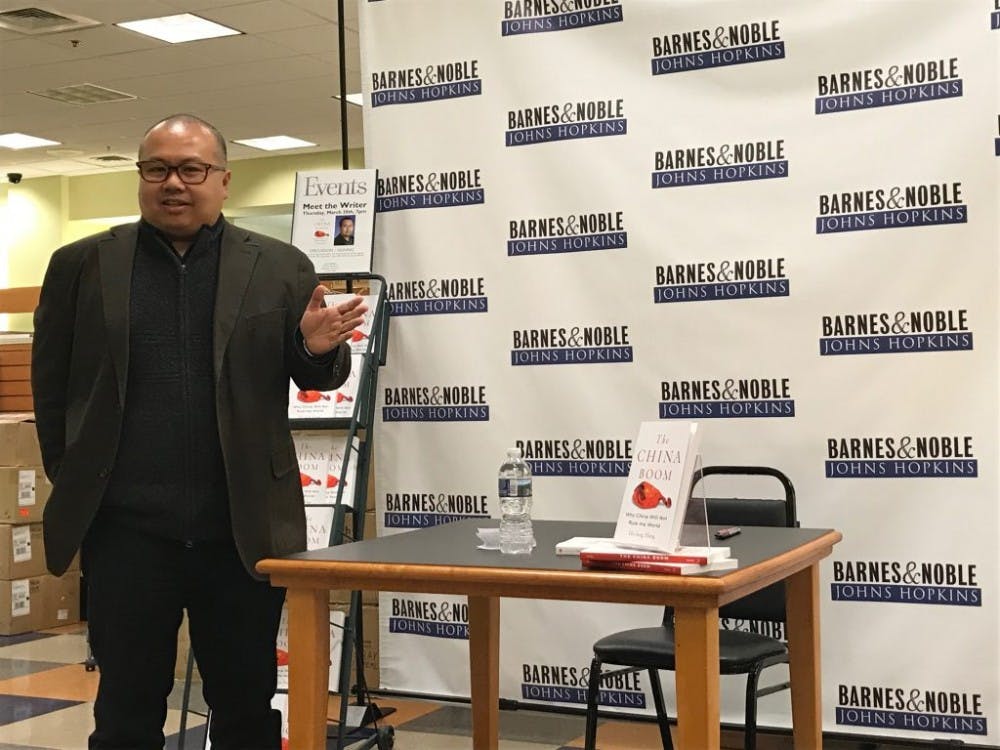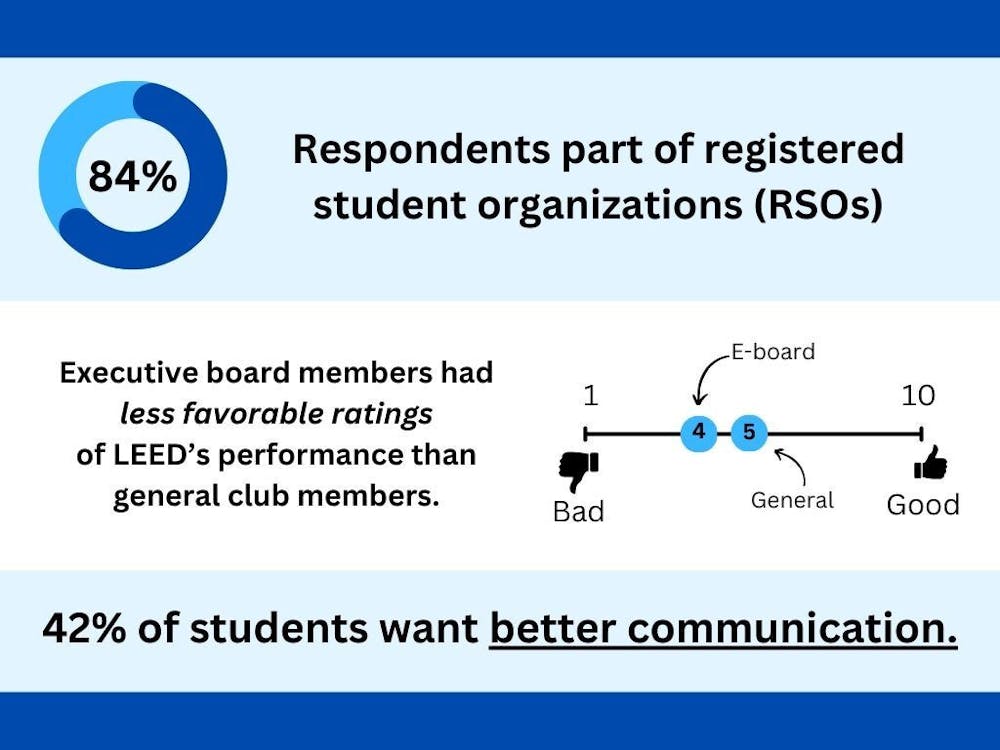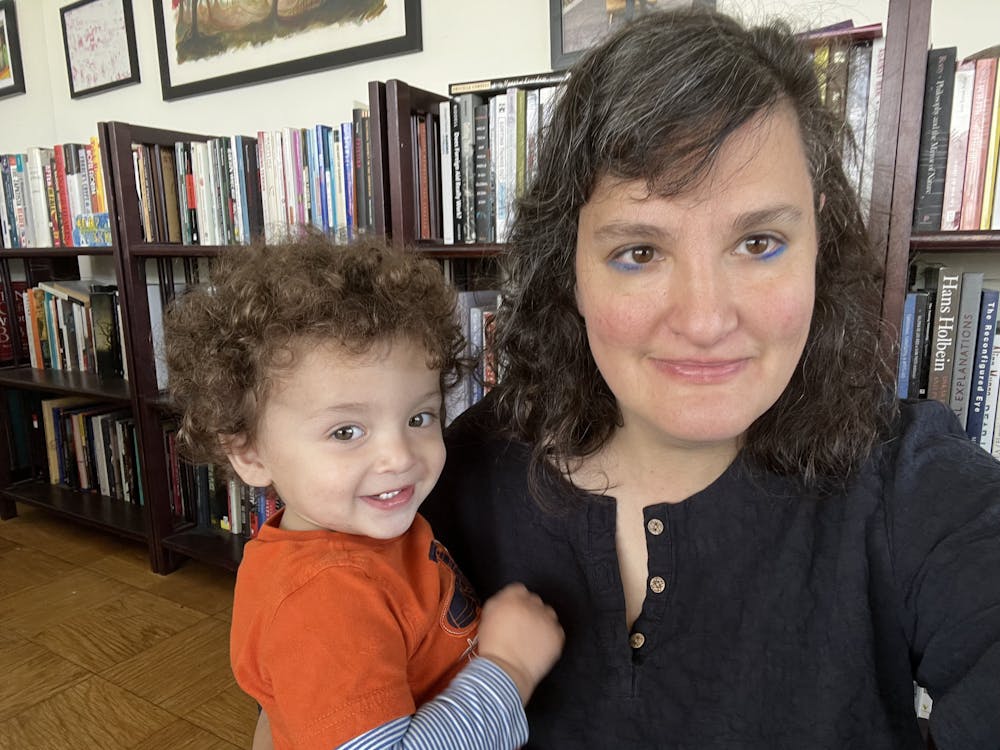Associate Professor of Sociology Ho-fung Hung discussed China’s future in the Trump era at a talk on Thursday, Mar. 30 in Barnes and Noble. The event was part of a promotion for his book, The China Boom: Why China Will Not Rule the World, published in 2015.
Hung’s talk focused largely on China’s recent economic slowdown, comparing Western capitalism in the United States to the semi-private Chinese economy. He also provided a comparative study of China and Japan to predict what an economic slowdown for China may entail.
“I was trying to dispunge this mystical conception that there’s something very special about Chinese capitalism,” Hung said. “Capitalism is a virus, that is the same virus everywhere but in different bodies... This kind of high speed growth is going to end. It’s going to slow down [and] it’s very normal.”
Hung’s book contextualizes the economic changes in China within the sweeping political changes happening around the world that affect economic policymaking. He said that, although written before Trump’s election, it was important for him to address American politics.
“I got Donald Trump on page one,” he said. “I finished the manuscript in 2014 and the book was first published in the fall of 2015. At that time, we didn’t have any idea of Donald Trump yet.”
Hung referenced a quote from 2012 in which Trump said that business and policy leaders in the U.S. should follow China’s example of government interference in economy.
Although Trump later blamed China for fabricating global warming, Hung said that this idea in 2012 reflects the President’s policies on environmental regulations today.
“It’s the mentality of why China is great, because you don’t need to concern anything about the environment and you can do what you want,” Hung said. “It actually presaged his action now as president.”
Hung was not optimistic concerning China’s future, warning that the nation may begin looking to expand in an echo of 19th-century imperialism.
“We are facing a very dangerous future,” he said. “The world is less livable than our generation or earlier, and because China is stuck in this crisis, it will definitely want to become more expansionary. That is the impulse given by its imperative to solve its internal contradiction, and many other places are doing the same.”
He warned that China’s exploitation of its workers could lead to a larger conflict, particularly if the U.S. turns a blind eye.
“We are heading into a more conflictual world, and we are facing some bigger and more serious crises unless we suddenly wake up and manage to find a more humane way for global governance,” he said.
Freshman Victoria Ontiveros argued that China offered opportunities for economic exploitation not of just natural resources but also of workers.
She said that the United States was previously a sort of “city-on-the-hill” that exemplified appropriate economic policy and allowed us to hold China accountable. However, she argued that the U.S. is moving towards China, which will make it more difficult to be watchful for exploitation.
“If we don’t focus... they can just continue to exploit every natural resource and every resource possible until they either run out or they have some social revolution,” she said.
Ontiveros contrasted Trump’s new policies to that of Obama, saying that the current administration prioritizes economic gain over social justice and could even lead to increased exploitation of Chinese workers.
“China is going to rise in standing only because our President is not going to come at them for environmental policies and is not going to come at them for the exploitation of their workers,” she said.
Ontiveros explained that citizens moved into cities for work but were still registered in rural areas and therefore didn’t have access to proper education or healthcare in the cities. She said that the Chinese government was driven by its economy and was less concerned with social issues.
“China just shows you a lot about what happens when the government doesn’t pay attention to the needs of the people with the least political voice,” Ontiveros said.

















Please note All comments are eligible for publication in The News-Letter.